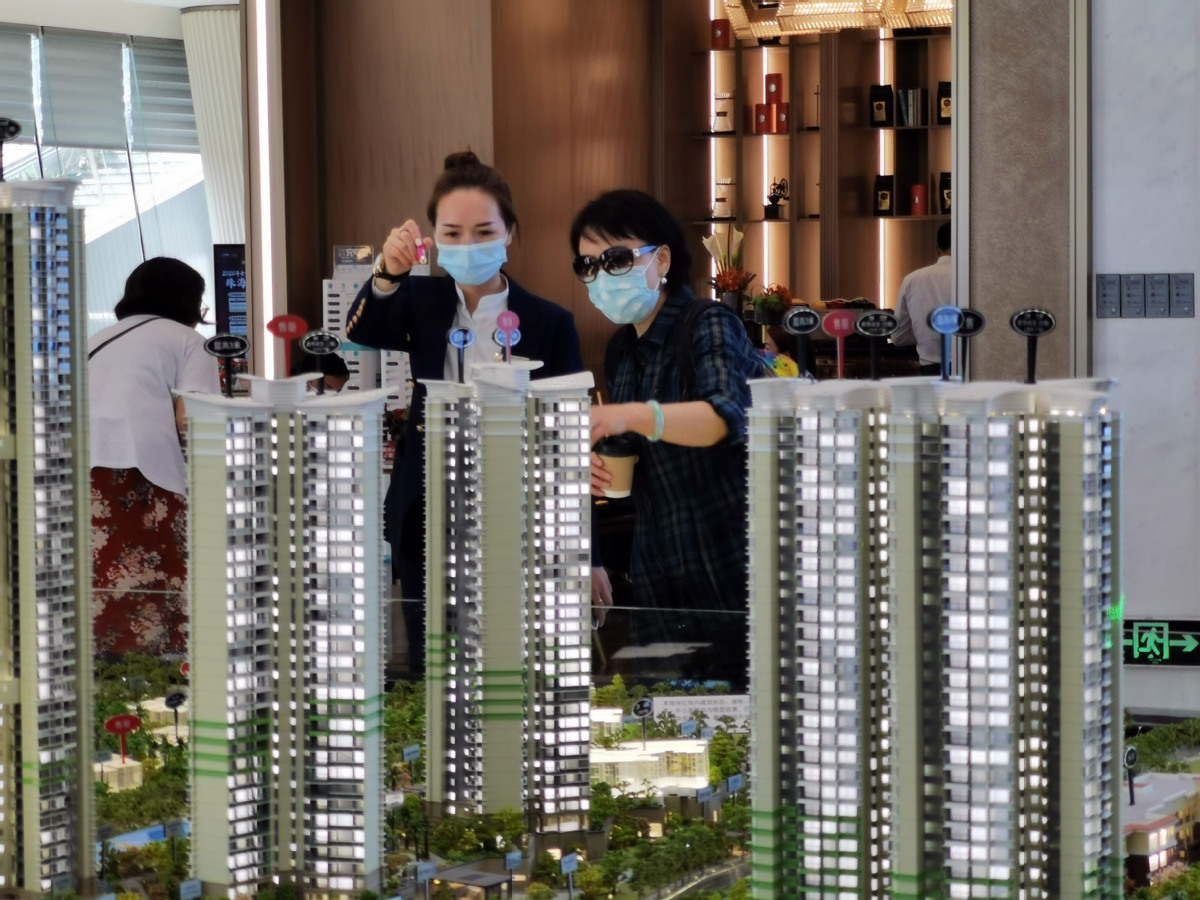Housing battles dilemma of price moves


Healthy development of China's property market can be ensured by reining in runaway home prices and guarding against sharp price drops, industry experts said citing recent cases of some Chinese cities that imposed limits on the extent of declines in new home prices.
To abide by the principle of "houses are for living in, not for speculation", local governments are formulating various measures to stabilize home prices to avoid significant rises and declines, they said.
While top-tier cities seek to tame runaway home prices, third- and fourth-tier cities offer a contrast-they are striving to prevent a crash in home prices.
In August, the bureau of housing and construction of Yueyang in Hunan province issued a notice which set a limit on the decline of new homes' prices in the city.
Yan Yuejin, director of the Shanghai-based E-house China Research and Development Institution, said Yueyang's notice showed that not all Chinese cities' home prices are on a rise.
Under de-stocking pressure, residential developers launched marketing and promotional activities, but unfortunately, those moves stoked concerns about a possible crash and created market disorder, Yan said.
In fact, in recent months, cities like Heze in Shandong province, Shenyang in Liaoning province, Kunming in Yunnan province, Tangshan in Hebei province and Jiangyin in Jiangsu province have all announced measures to prevent dropping prices from sparking a crash.
As early as 2019, local housing regulators announced a "price guideline" for local home trading, requiring that the price cut be limited within 5 or 10 percent. Zhang Dawei, chief analyst at Centaline Property Agency Ltd, said such cities included Hefei in Anhui province, Dongguan and Huizhou in Guangdong province, and Guilin in the Guangxi Zhuang autonomous region.
The latest round of orders limiting the extent of drop in new home prices was necessitated by property developers that are under high pressure of debt and tight liquidity. But such phenomena can be taken as proof of seeking stability across the property market, said Zhang.
Tightening measures have produced the desired effect in some places as transactions for new homes in 66 Chinese cities slowed in August from previous month, according to data from the Beike Research Institute.
Apart from a 20 percent year-on-year growth in trade volume in August in the four top-tier cities, that of second-, third- and fourth-tier cities all retreated from a year ago.
For instance, in Jiangyin of Jiangsu, only 780 flats were traded in August, down 23 percent month-on-month, the China News Network reported, citing data from a local real estate website.
According to the National Bureau of Statistics, Yueyang's new home price slid 0.7 percent month-on-month in July, the highest month-on-month drop among all 70 Chinese major cities the NBS monitors.
Apart from a few hot spot cities that still face the risk of overheating, most Chinese cities are seeing their property markets cool down. Experts said they expected authorities' future measures would include preventing a crash in home prices.
Any sharp drop in home prices would distort market characteristics as slick discount promotions could help low-quality property projects to sell better than high-quality projects with less discount, said Li Jiayu, chief analyst at the provincial residential policy research center of Guangdong.
Furthermore, developers that bid for land years ago at a comparatively low cost could afford larger home price cuts, disadvantaging developers who may have purchased land recently at high prices, Li said.
The caps on discounts on home prices have focused attention on lower-tier cities' property markets. These cities need to find a solution to digest inventories and ensure home market stability, said Yan.
Rational attitude toward this phenomenon would help treat the property market in a more comprehensive manner. To safeguard the real estate sector's stable and healthy development, timely regulations on price movements would be necessary, he said.



































